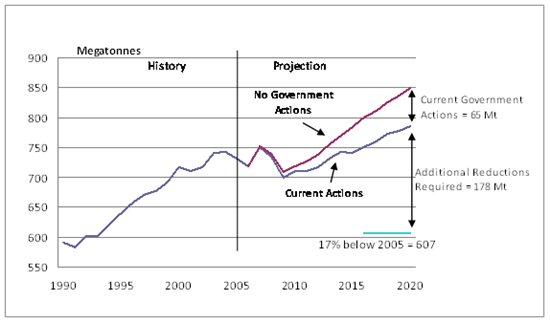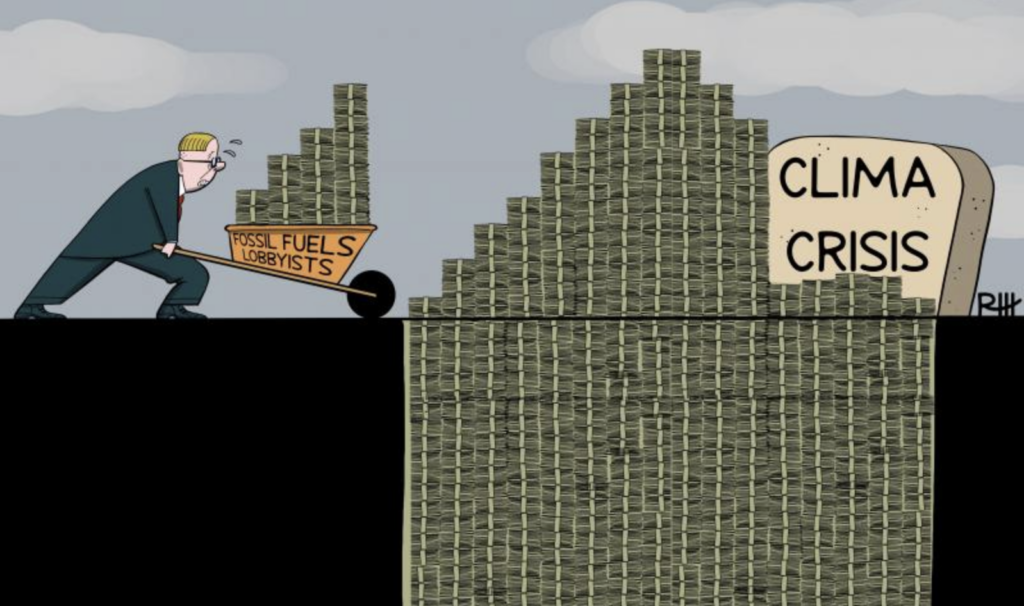Environment Minister Even Calls that Plan “Credible”
Postmedia reporter Mike De Souza has an amusing story about outrage in the office of Canadian Environment Minister Peter Kent over coverage of a ministerial speech last week.
The Minister had told the Economic Club of Canada that “Canada has a credible plan for addressing our environmental challenges.” At the same time, his department was releasing a document with the graph at left, showing a vast gap between the government’s stated emission reduction targets and the continuing rise of those emissions.
De Souza gives the Minister’s office every chance to comment, clarify or correct his report. But at the end of the day, it sure looks like Canada’s plan is to blow off its commitments once again – woefully, just as everyone expected.
Subscribe to our newsletter
Stay up to date with DeSmog news and alerts







